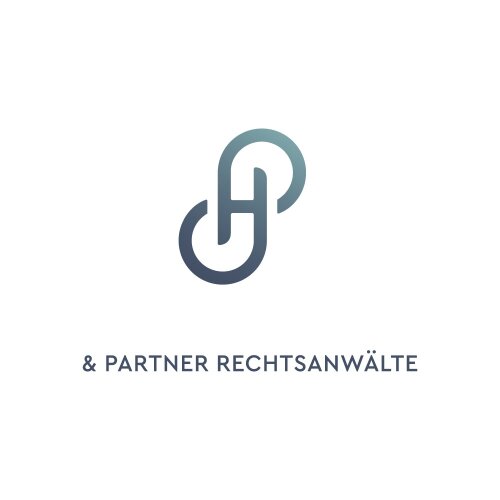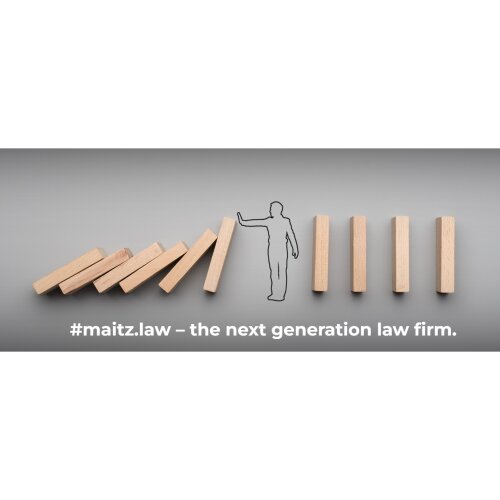Best Trademark Lawyers in Ruggell
Share your needs with us, get contacted by law firms.
Free. Takes 2 min.
List of the best lawyers in Ruggell, Liechtenstein
About Trademark Law in Ruggell, Liechtenstein
Trademark law in Ruggell, Liechtenstein, serves to protect distinctive signs, logos, or expressions that distinguish goods or services of one entity from those of others. Trademarks can include words, names, symbols, or a combination of these elements. In Liechtenstein, trademarks are governed by national laws and regulations, ensuring that brand identities are safeguarded and recognized within the jurisdiction and internationally.
Why You May Need a Lawyer
Engaging a lawyer with expertise in trademark law can be crucial in several situations:
1. Trademark Registration: Navigating the application process, ensuring all requirements are met, and handling potential objections or refusals.
2. Infringement Issues: If someone is using your trademark without permission, a lawyer can help you to stop the infringement and seek compensation.
3. Trademark Enforcement: Enforcing your trademark rights against unauthorized use, including legal actions and negotiations.
4. Trademark Defense: Defending your trademark from cancellation attempts or claims of infringement by others.
5. Trademark Management: Managing a trademark portfolio, including renewals, assignments, and transfers.
Local Laws Overview
Key aspects of local trademark laws in Ruggell, Liechtenstein include:
1. Registration Process: Trademarks must be registered with the Liechtenstein Office of Economic Affairs to gain protection. The process involves an application, examination, and potential opposition period.
2. Duration and Renewal: Registered trademarks in Liechtenstein are valid for ten years from the date of application and can be renewed indefinitely for further ten-year periods.
3. Grounds for Refusal: Trademarks may be refused registration if they are descriptive, lack distinctiveness, or conflict with earlier rights.
4. International Treaties: Liechtenstein is a member of international trademark treaties such as the Madrid Agreement and Protocol, allowing for broader protection via international applications.
5. Enforcement and Penalties: Trademark infringement can lead to civil and criminal penalties, including injunctions, damages, and fines.
Frequently Asked Questions
1. What can be registered as a trademark in Liechtenstein?
Anything that distinguishes your goods or services from others, such as words, logos, symbols, designs, and combinations of these elements, can be registered as a trademark.
2. How long does the trademark registration process take in Liechtenstein?
The registration process typically takes around 4-6 months, depending on the complexity of the application and any potential opposition.
3. Can I register a foreign trademark in Liechtenstein?
Yes, foreign trademarks can be registered in Liechtenstein through the Madrid System or by directly applying with the national trademark office.
4. What should I do if my trademark application is opposed?
If your application is opposed, you should seek legal advice to respond effectively. A lawyer can help you present your case and negotiate with the opposing party.
5. How can I enforce my trademark rights in Liechtenstein?
To enforce your trademark rights, you can take civil or criminal actions against the infringer, seeking injunctions, damages, and other legal remedies.
6. What are the costs associated with trademark registration and maintenance?
Costs include application fees, renewal fees, and potential legal fees for handling objections or disputes. It is advisable to consult with a lawyer for a detailed cost estimate.
7. What happens if I don’t renew my trademark?
If you fail to renew your trademark, your rights can lapse, and you may lose the exclusive right to use the trademark.
8. Can I transfer my trademark to someone else?
Yes, trademarks can be assigned or licensed to others. Proper legal documentation is required to ensure the transfer is valid.
9. How do I know if my trademark infringes on someone else's rights?
Conducting a thorough trademark search before filing can help determine if similar or identical trademarks already exist. Legal advice can further clarify any potential conflicts.
10. What should I do if someone else is using my trademark without permission?
Seek legal advice immediately to determine the best course of action, which may include sending a cease and desist letter, negotiating a settlement, or pursuing legal action.
Additional Resources
For further assistance, you can refer to the following resources:
1. Liechtenstein Office of Economic Affairs: The official body handling trademark registration and administration (Amt für Volkswirtschaft).
2. WIPO (World Intellectual Property Organization): Provides information on international trademark laws and the Madrid System.
3. Legal Professionals and Firms: Local law firms specializing in intellectual property law can offer personalized guidance and support.
Next Steps
If you need legal assistance in trademark matters, consider the following steps:
1. Research and Identify: Identify a qualified lawyer or law firm with expertise in trademark law in Liechtenstein.
2. Consultation: Schedule a consultation to discuss your situation, understand your legal options, and obtain a cost estimate.
3. Documentation: Gather all relevant documentation, including evidence of trademark use or infringement, and share it with your lawyer.
4. Proceed with Legal Actions: Based on legal advice, proceed with the necessary legal actions, whether it's filing for registration, enforcing your rights, or defending against claims.
By taking these steps, you can ensure that your trademark rights are properly protected and enforced in Ruggell, Liechtenstein.
Lawzana helps you find the best lawyers and law firms in Ruggell through a curated and pre-screened list of qualified legal professionals. Our platform offers rankings and detailed profiles of attorneys and law firms, allowing you to compare based on practice areas, including Trademark, experience, and client feedback.
Each profile includes a description of the firm's areas of practice, client reviews, team members and partners, year of establishment, spoken languages, office locations, contact information, social media presence, and any published articles or resources. Most firms on our platform speak English and are experienced in both local and international legal matters.
Get a quote from top-rated law firms in Ruggell, Liechtenstein — quickly, securely, and without unnecessary hassle.
Disclaimer:
The information provided on this page is for general informational purposes only and does not constitute legal advice. While we strive to ensure the accuracy and relevance of the content, legal information may change over time, and interpretations of the law can vary. You should always consult with a qualified legal professional for advice specific to your situation.
We disclaim all liability for actions taken or not taken based on the content of this page. If you believe any information is incorrect or outdated, please contact us, and we will review and update it where appropriate.









